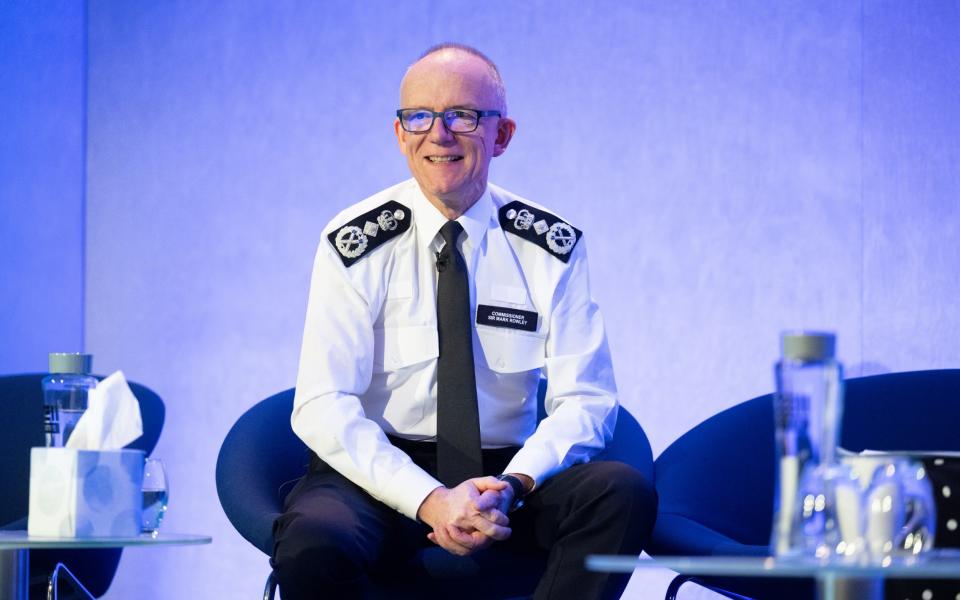Identifying most dangerous terrorists like finding 'needle in haystack', Sir Mark Rowley warns

The UK has tens of thousands of potential terrorists and identifying the ones who are likely to carry out an attack is like finding a “needle in a haystack”, Sir Mark Rowley has warned.
While the most dangerous extremists in Britain are closely monitored by the police and security services, there are many more who share the ideology but lack the “spark to act”.
The Met Commissioner said the trigger was often something that happened in their personal life, making it extremely difficult for the authorities to keep on top of.
Last year, there were more than 6,400 referrals to Prevent, the Government’s counter-extremism programme, but just 3 per cent came from friends and family.
In an interview for a new book exploring terror plots that have failed or have been interrupted, Sir Mark admitted it was often difficult for the police to prioritise which extremists were likely to carry out an act of terror.
He also said the rise of Islamic State in Iraq and the Levant (Isil) and the increase in the use of low sophistication attack methods had made the landscape more unpredictable.
Sir Mark, who was the head of counter terror policing between 2014 and 2018, said: “Those where we know they’re up to something and we’re after them, the system works.
“But you’ve got thousands of lower priority investigations and then tens of thousands who are not in investigations but we know they have some form of ideological support for terrorism, they’re just not acting on it.”
He went on: “It’s in those thousands and tens of thousands that somebody’s life changes and a really good example was [Khalid] Masood, the Westminster Bridge one, where it looks like two or three months before the Westminster attack his life had changed and it’s believed that was the trigger point for him moving on from just having ideological support to him wanting to act on it.”
Masood had converted in prison and first came to MI5’s attention five years before the attack after appearing on the periphery of a counter-terror investigation. But the file on him was closed when it was deemed he did not pose a significant threat to the public.
Westminster Bridge
Masood killed five people including a police officer when he drove at pedestrians on Westminster Bridge and then attempted to storm parliament with a knife in March 2017.
His attack came after his marriage broke down and he struggled to find work after a failed move abroad.
Sir Mark said: “So a broad sense that there’s this wider pool of people who have the mindset but haven't yet had the spark to act and it’s hard to judge when and how that spark will come and whether it’s going to be a family situation or a job situation or something?
“It may never come for most of them, because there’s tens of thousands of them. Most of them might have some ideological support for Islamist terrorism or right-wing terrorism but they’re not the sort of person who wants to act on it and some of them never will.
“Some of them, the view will stay with them for the long-term, for some of them that view will change and they’ll come back to perhaps a more normal view of society.
“The ones who are going to go from passive supporters doing nothing illegal but being worrying through to acting on it is a small number. Spotting that small number in those tens of thousands is the needle in a haystack.”
Sir Mark said the best way to spot a threat was to have “multiple different radars” made up of intelligence from security sources alongside information from the local community.
“Putting GCHQ and nosy neighbours on the same list looks very odd at the first inspection but actually, the more of those differently configured radar systems you have, the better chance you will spot most things and fewer will slip through the cracks. It won’t be perfect but that’s what you’re constantly trying to do,” he said.
'Plotters: The UK Terrorists Who Failed, By Lizzie Dearden, is published by Hurst on March 23 at £25.

 Yahoo News
Yahoo News 